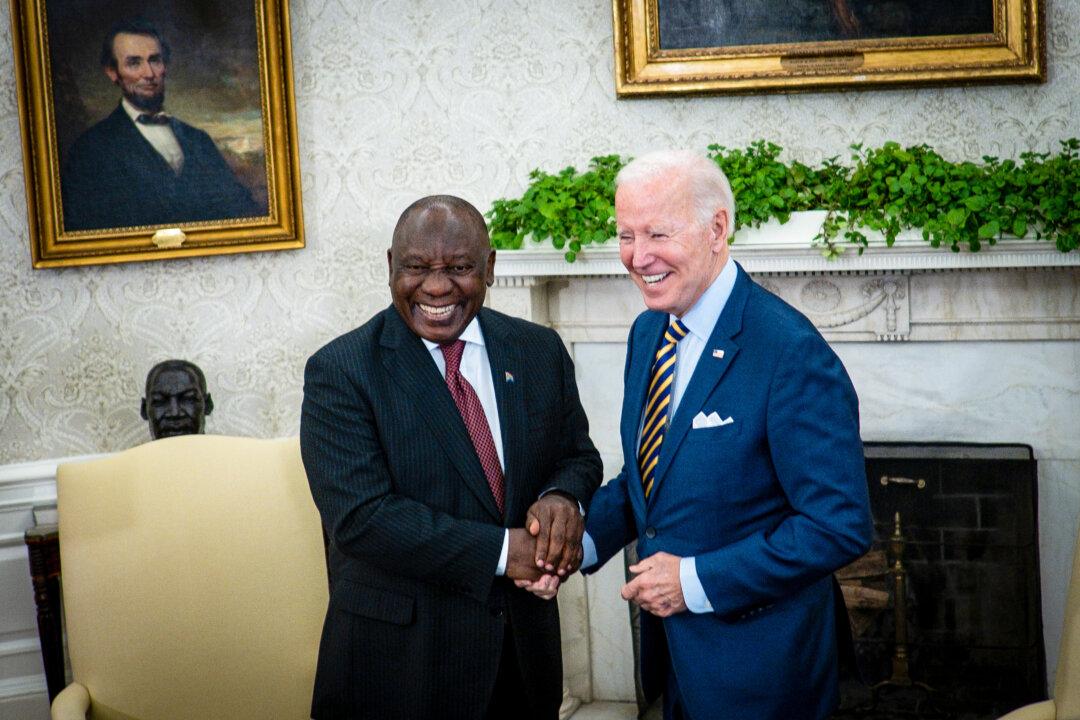JOHANNESBURG—Senior officials from the South African government have been in Washington since April 28 to try to prevent the Biden administration and members of Congress from punishing the country for its increasingly close links with China, Russia, and other anti-United States powers.
The delegation is led by President Cyril Ramaphosa’s national security adviser, Sydney Mufamadi, who is also a top member of South Africa’s governing African National Congress, the ANC.





